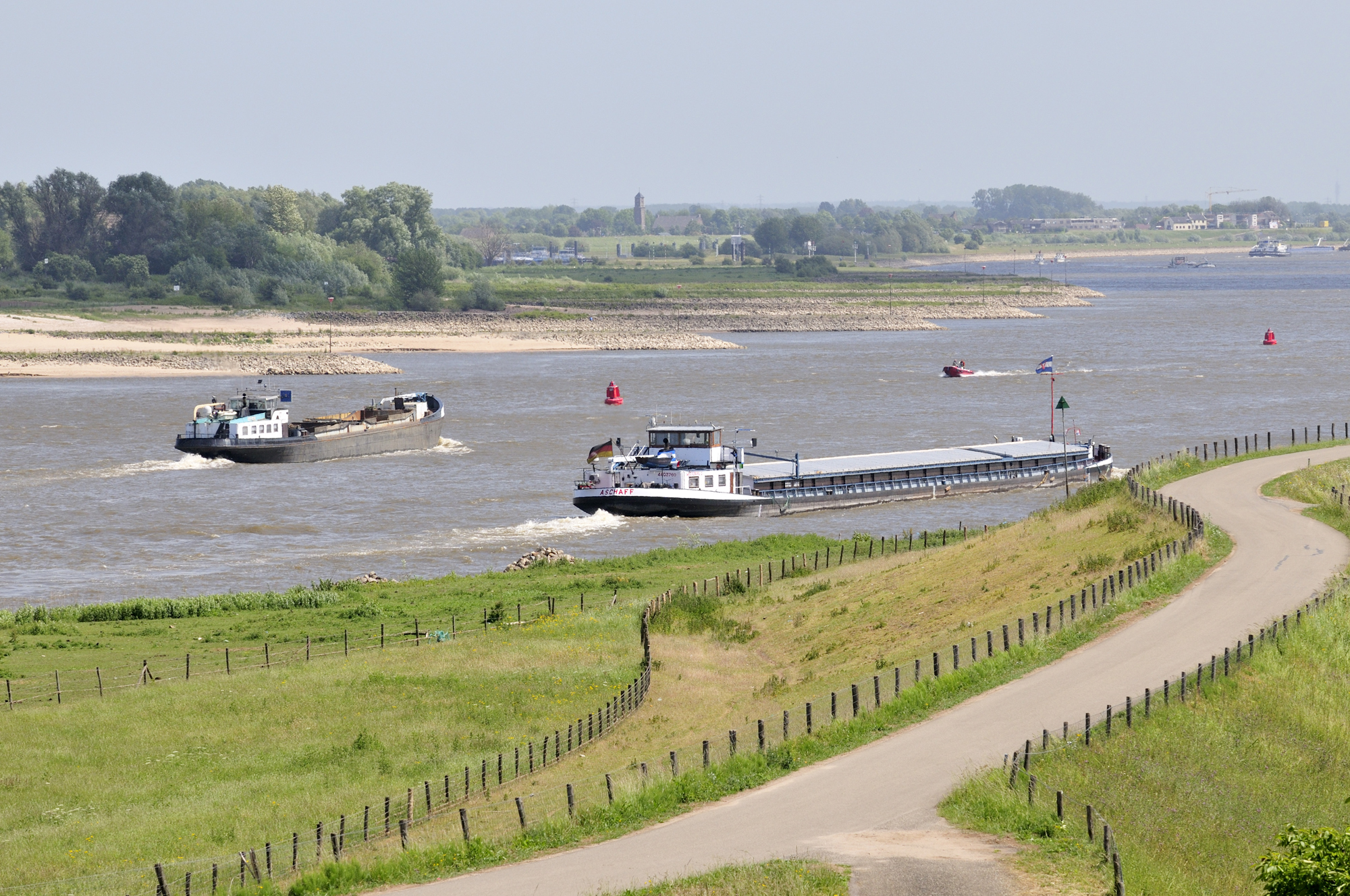Tomorrow a research program will start to see how you can increase transport over water. This is better for the environment. Professor Rudy Negenborn is leading the programme.
Inland navigation at low water over the river Waal. (Photo: Beeldbank Rijkswaterstaat | Martin van Lokven)
Low water levels in summer are a recurring phenomenon. Persistent drought in the European spring is turning the major rivers narrower and shallower. Inland navigation adapts by carrying less cargo and by searching for the deepest places. Professor Rudy Negenborn (Maritime & Transport Technology at 3mE) argues that this could be done more smartly. This spring, he received almost EUR 9 million from the European Commission for the NOVIMOVE (Novel Inland Waterway Transport Concepts for Moving Freight Effectively) research programme whose target is to increase the capacity of waterborne transport by 30% by 2030 compared to 2010. The reason: waterborne transport between Rotterdam or Antwerp and Basel produces much lower CO2 emissions than the equivalent road transport. However, poor connections and the poor use of information means that the capacity of inland navigation is underutilised. NOVIMOVE is coming up with concrete proposals to change this. The research programme will be launched on 19 June.
Currently, the water level in the major rivers is low and ships are carrying less cargo. How will your research improve this situation?
“We are going to optimise waterborne transport over the entire corridor from Antwerp and Rotterdam to Basel. We are looking at three different components: ship design, smart navigation, and logistics. What ship will you deploy for what cargo? Variations in water levels can have a major impact on what can and cannot be transported by water, and on the capacity of ships. We will certainly take these into account as well. One idea is a new ship design with a kind of inflatable float on the sides to reduce draught.”
What is the overarching idea of your proposal?
“NOVIMOVE focuses on removing ‘gaps’ in time and space. There are still a lot of waiting times at ports because logistics processes are not well connected to each other. There are waiting times at locks because of the lack of good coordination between when skippers arrive and who has priority. In terms of space, low water levels and changes in river beds determine where ships can sail. Furthermore, the loading of containers is not optimal. Many containers are not full at all. This could be improved by combining cargo at the beginning of the voyage and dividing it up again further down the line.”
Isn’t that very laborious?
“That’s what we’re going to find out.”
How can you shorten these waiting times?
“On the one hand, it’s a question of developing the technology of navigation systems so that they communicate with locks. At the moment, each skipper sails as quickly as they can to the next lock, only to find out that they didn’t need to. They also sail as quickly as possible to the terminal, but then have to wait as a seagoing vessel is still being unloaded. The skipper sails quickly, but if he had known all this in advance, he would have been able to sail more slowly and economically. That would save fuel and emissions. In addition to the technical research, there is the logistics component in which you need deep collaboration with the companies and organisations involved. That’s why a lot of companies such as port authorities and waterway authorities are involved as they will ultimately integrate the technology into their processes.”
What do you expect to be the most tangible outcome in four years’ time?
“We will have a system with which we can determine the right combination of innovations to bring about the greatest logistical improvement. We will then be able to simulate the situation so that we can demonstrate the benefits of the innovations. In addition, we will have two demonstrators: one of the smart lock planning that communicates between lock and ship, and a scale model of a ship type with an adjustable draught.”
In addition to TU Delft, 21 parties are involved in the consortium. They include knowledge institutes, transporters, port authorities and technology developers. “We can now further develop many of the ideas we are working on in the fundamental research department with external partners,” says Negenborn. The NOVIMOVE programme is one of the four research programmes in the field of inland navigation innovation awarded funds from the European Horizon 2020 programme. The programme starts on 19 June 2020 and will run for four years.
The research programme will be launched on 19 June 2020 in an online event where the research groups in the field of ship design, navigation and logistics will discuss what they need from each other. Research leader Negenborn is expecting the first public demonstrations over the course of 2022.
Do you have a question or comment about this article?
j.w.wassink@tudelft.nl


Comments are closed.